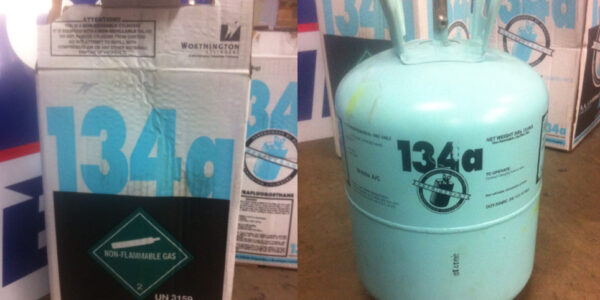European PFAS laws may kill R1234yf before it reaches widespread uptake Down Under
- PostedPublished 24 March 2023
Just as the adoption of R1234yf is slowly gaining traction in Australasia after car-makers dragged the chain for far too long, the ultra-low global warming potential refrigerant could be banned due to its classification as a PFAS (per- and polyfluoroalkyl substance).

Known as ‘forever chemicals’, PFAS – found in many everyday products including refrigerants – are facing bans in Europe and elsewhere over environmental and health concerns.
PFAS build up in living organisms – including our bodies – and never break down. The European Commission states that PFAS “are extremely persistent in the environment”.
“Their production and use has resulted in severe contamination of soil, water and food and harmful exposure to humans.”
Proposed bans could directly affect refrigerants such as R1234yf, which in Europe has successfully replaced R134a in new car air-conditioning systems, as soon as 2025.

It is still unclear which refrigerants may be banned but according to Ricardo PLC the following fall under the PFAS definition: HFC-125, HFC-134a, HFC-143a, HFC-227ea, HFC-245fa, HFC-365mzz, HFO-1234yf, HFO-1234ze, HFO-1336mzz and HCFO-1233zd.
Many of these chemicals are low-GWP substitutes for air-conditioning, refrigeration and foam-blowing applications, currently being used to phase out their high-GWP predecessors, or are a component of new refrigerant blends either on the market or under development.
The momentum behind R456 as a lower-GWP service retrofit refrigerant for R134a systems – a non-flammable blend of 49 per cent R1234ze(E), 45 per cent R134a and six per cent R32 – could be scuppered by the PFAS ban.
Similarly, a PFAS ban could substantially thin out the range of under-development refrigerants for electric vehicle heat pumps from Chemours (formerly DuPont), Daikin, AGC Chemicals, and Koura (formerly Mexichem).

The PFAS ban was initially proposed by Germany, the Netherlands, Norway, Sweden and Denmark. This is due mainly to environmental contamination and links to serious health effects. North American and Australasian countries are also looking to follow suit.
Banning these refrigerants could have the knock-on effect of not only unavailability but also reduced consumer choice, increased costs and the use of unapproved alternatives such as hydrocarbons.
Motivation to upgrade ageing equipment could also jeopardise environmental efforts such as the EU Green Deal for climate neutrality by the year 2050.
Environmental bodies and chemical producers remain in dispute over which refrigerants can be considered PFAS products and what degree of environmental harm they may pose.
PFAS have suspected links to a number of human health issues including cancer, as well as immunity, reproductive and developmental problems.
Contamination makes its way up the food chain from crops and livestock, as well as through drinking water.
- CategoriesIn SightGlass
- TagsPFAS, R1234yf, SightGlass News Issue 28



